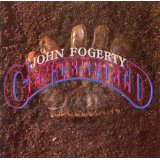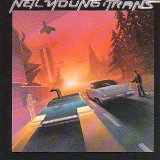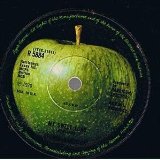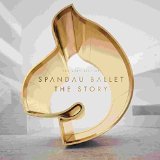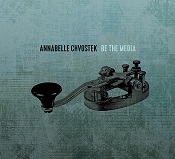 If you’re after an album that’s safe and unpredictable and you know exactly what’s coming next, then “Be the Media” is definitely not the album for you. Annabelle Chvostek’s fifth solo album moves away from the folky sound of her two previous albums “Rise” and “Resilience” to a sound that is lo-fi and embraces styles from indie thrash to psychedelia with several stops and detours on the way. It’s fair to say that with this album, you never know what’s coming next. Annabelle’s roots are in Canada, which may go some way to explaining the affinity to and parallels with Neil Young, who’s also had the odd change of direction along the way.
If you’re after an album that’s safe and unpredictable and you know exactly what’s coming next, then “Be the Media” is definitely not the album for you. Annabelle Chvostek’s fifth solo album moves away from the folky sound of her two previous albums “Rise” and “Resilience” to a sound that is lo-fi and embraces styles from indie thrash to psychedelia with several stops and detours on the way. It’s fair to say that with this album, you never know what’s coming next. Annabelle’s roots are in Canada, which may go some way to explaining the affinity to and parallels with Neil Young, who’s also had the odd change of direction along the way.
The album is built around live-band recordings with some overdubs added later and the raw, Stooges-like, power of the title song gives some idea of the direction the album’s taking, but there are still plenty of surprises to come. “Jerusalem” is mournful lyrically and musically with the added melancholy of some Middle-Eastern violin to season the mixture. “Black Hole” sets the controls for the heart of the sun with the simple, if bleak, message that we’re all irrelevant compared to the vastness of the universe, delivered over a soundscape that’s part early Pink Floyd and part Neil Young’s “Like a Hurricane”; it’s certainly dramatic. “This Night” is the closest the album comes to a love song, if you count ‘Your hand is the hand I hold to jump out of the burning tower’ as a lyric. Powerful yes: cheerful no.
“Carnal Delights” is the perfect example of the albums’s twist and turns. From a doom-laden minor key verse, the song bursts into chorus in 3/4 time that’s straight out of a sleazy 1930s cabaret routine; and yes, that is someone playing a saw (Lisa Gamble, actually). It’s an odd one, but the contrast works perfectly. “You Can Come Now” is probably closest to Annabelle’s earlier work with gentle electric guitar and a vocal that isn’t pushing at the edges her voice’s power; it’s very different from the songs it’s surrounded by. As if to cement the Shakey connection, there’s a stripped-back cover of “Like a Hurricane” featuring mainly mandolin and piano with a touch of guitar. It’s very different and it works.
“Inside the Scream/Screen” returns to the spiky guitars and claustrophobic technophobia of the title track before another change of pace to “Say it Right” which has a hint of Television-styled guitars and the album’s only example of swearing; one use of ‘fucking’ for emphasis and a bit of shock value is so much more powerful than using it in every sentence.
So Annabelle Chvostek, Tony Spina (drums), Jérémie Jones (bass and organ), Lisa Gamble (saw and backing vocals), Jordi Rosen (backing vocals), and co-producer Jeff Oehler have created a piece of work that moves from menacing to mournful to manic but never loses its grip on your attention; you may not know what’s round the corner, but you can bet it’s going to be worth hearing.
“Be the Media” is released on June 1 on MQGV (ABC123).
Please tell me it hasn’t come round again already; drunks on public transport, pubs packed with once-a-year drinkers and a demand from MusicRiot to cobble something together for their inane end of year feature. Damn, Christmas again and I hate Christmas unless I can sack a widow on Christmas Eve. But wait, I can see a chink of gloom poking through the bright lights; it looks like John Fogerty and Creedence Clearwater Revisited are opening legal hostilities again, so I think a festive five music lawsuits is about as much fun as I can hope for.
The man in the lumberjack shirt and his CCR ex-buddies are kicking legal lumps out of each other again and nobody really knows what it’s all about, but there are plenty of lawyers involved and onstage pronouncements and press conferences and a whole flamin’ media circus. Just bear this in mind guys; whoever wins, all the lawyers get paid.
But that’s not the most interesting lawsuit John Fogerty has been involved in, oh no. He sold the rights to his songs to his former label Fantasy (headed by the infamous Saul Zaentz) to escape from label (don’t try that one at home boys and girls) and go solo. So, Mr Fogerty gets a bunch of songs together and releases the album “Centerfield”. Happy ending; not quite. The litigious Mr Zaentz sues on the grounds that the album’s opening song, “The Old Man down the Road” plagiarises a Creedence song, “Run Through the Jungle”, which Zaentz holds the copyright for. He wasn’t too chuffed about the song “Zanz Kant Danz” (later changed to “Vanz Kant Danz”) either. So what could be more stupid than suing someone (unsuccessfully) for copying their own song?
Well, David Geffen had a pretty good shot at it in 1983 with Neil Young when he sued him for not sounding like his previous records. After signing one of the most contrary artists in rock (or maybe just a guy who follows his own artistic vision), he decided, after three albums he didn’t like, to sue Shakey for submitting ‘uncharacteristic’ music for release. Maybe it was a bit of a coincidence that the albums weren’t selling. You have to wonder where David Geffen had been living during the seventies if he hadn’t realised that Neil Young didn’t give a stuff about following commercial trends. They eventually kissed and made up and Shakey went back to his spiritual home at Reprise records.
So that’s one case of a label suing an artist for sounding too much like themselves and another case of a label suing an artist for not sounding like themselves. Where else can the stupidity go? Well, back in time a decade or so.
After the Beatles, the quiet one was quickly out of the blocks with the triple album “All Things Must Pass” and the single “My Sweet Lord”. Three weeks after the release of the single, George was hit with a lawsuit alleging that the single plagiarised the Chiffons single, “He’s So Fine” (big in the US, not so big in the UK). It took five years for the case to come to court and George was found guilty of “subconscious plagiarism”, which cost him over half a million dollars. What you have to ask is how come no-on spotted this similarity? “All Things Must Pass” was co-produced by Phil Spector, who was very much part of the American teen scene in 1963 when “He’s So Fine” was a hit. It’s hard to believe he couldn’t spot such an obvious similarity. So, how many more ways could lawyers invent to make money out of the music business. How about “Where there’s blame there’s a claim”?
Jumping back to the eighties again, in 1988 the parents of a teenage fan tried to accuse Ozzy Osbourne of causing the death of their son, claiming that hidden lyrics in “Suicide Solution” had caused their son to take his own life; the suit was dismissed but it didn’t mean that the suicide blame game was over. In 1990, Judas Priest were taken to court by the parents of two teenagers who, after a drugs and alcohol binge, attempted a suicide pact. It’s interesting that no-one was trying to sue any brewers, distillers or dealers for their part in the events. Just ask yourself again who benefitted from these legal cases; I’ll give you a clue, it wasn’t the parents or the bands. Ok, it’s Christmas, let’s try to end on a slightly happy note.
It all started off so well; a bunch of school friends got together and formed a band in the seventies. The band caught the New Romantic zeitgeist with their first single in 1980 and everything was looking good; who needed lawyers and contracts? Well, in this case it might have been a good idea (I never said I had to be consistent) because any memories of verbal agreements vanished after the band became famous. In 1990, Tony Hadley, Steve Norman and John Keeble sued for a share of the booty, claiming that their contributions and a verbal agreement entitled them to a twelfth of the royalties. The case was dismissed and the non-Kemp Spandaus faced huge legal bills, but that wasn’t the end of the affair.
In 2009, the guys resolved their legal issues and got back together to tour again as Spandau Ballet; well, it is Christmas and we should have a happy ending really. There’s a lesson there as well; at this time of year, everyone goes to the pub and maybe that’s what the Spandaus and all of the other people mentioned here should have done. Forget all of the lawyers, go and have a few beers and sort all of your problems out.
Merry Xmas.
Ok, you weren’t expecting to find Noel Coward here were you? Well, it’s about time you had some proper culture instead of all that pop music nonsense. In the play “Private Lives”, the character Amanda has the memorable line “Extraordinary how potent cheap music is”, which has been quoted virtually everywhere. The broadsheets love to give pop thinkpieces an intellectual feel by throwing this one in, but there’s a whole new slant on it now. Thom Yorke and Nigel Godrich (and a few others) are having hissy fits about the financial returns from Spotify, but they’re missing the real target by a country mile.
The problem isn’t that consumers are only willing to pay a small amount for music. Most of the traditional teenage pop/rock/r’n’b (add your own genre as applicable) music consumers have grown up with the assumption that music is free if you know where to look for it, so why would you ever pay for it? Things used to be really simple; you heard a song on the radio (or in a club) or read about it in the NME and went to your local music shop and bought it on 7” vinyl, 12” vinyl, cassette or CD, depending on your age. The record company took a huge slice of the profit, but the artist got paid, particularly if they had a good lawyer and they wrote the song. The music business panicked in the seventies over home taping, but still pushed the development of digital technology in the eighties not realising they were opening a can of particularly fat, juicy worms.
Digital recording and processing; you can make and keep perfect copies of everything and there’s no degradation no matter how many generations of copies you make. No more tapes or master discs to worry about storing (or having stolen by the band when they don’t like the mix or don’t think their piece of the action is big enough). And then the realisation dawned that if Sony (other labels are available) could make perfect copies, then it was only a matter of time before some under-nourished geek in a bedroom in Dollis Hill worked out how to crack the code and make their own perfect copy, which they generously circulated around the world with that new internet thing. And they were actually complicit in the process when they got behind recordable formats such as Minidisc and Digital Compact Cassette (ask your dad, kids).
Of course it was easy to do a quick and dirty remaster for CD on all of your back catalogue and get the punters to pay to hear them again with a clarity you promised they wouldn’t believe. Have you heard some of those early remasters? Some of them are actually painful to listen to, but we bought into it and duplicated our vinyl with CDs. But the physical CD market was quite healthy because the audio files were massive and transfer speeds on the internet were painfully slow. So, there would only be a problem if someone worked out a way of speeding up the internet and making audio files much smaller; that wasn’t going to happen, was it? MP3 and broadband sorted that one out with a little help from those lovely people at Apple and soon we were downloading MP3s as well.
Of course the music industry tried to defend itself with copyright protection systems (which didn’t work) and litigation (which also didn’t work), so we’re in a position now where creativity has virtually no value. Bands are being asked to pay to play in venues, musicians are being asked for permission to use their work in films for free (for the exposure value) and music writers and photographers are working for peanuts. It couldn’t get any worse, could it?
Of course it could. In a typical “four legs good, two legs better” move, the music industry is showing an interest in Neil Young’s PONO full-fat, uncompressed music delivery system (which Shakey’s been trying to flog for years now, with no success) after years of squeezing sound files as small as you can to get them to sound good on an MP3 player or a phone. It’s CD all over again; if this system ever makes it to the market, then it’s an opportunity to persuade the small market sector that still believes in paying for music to shell out for their favourite albums yet again. But we won’t get fooled again, will we?


